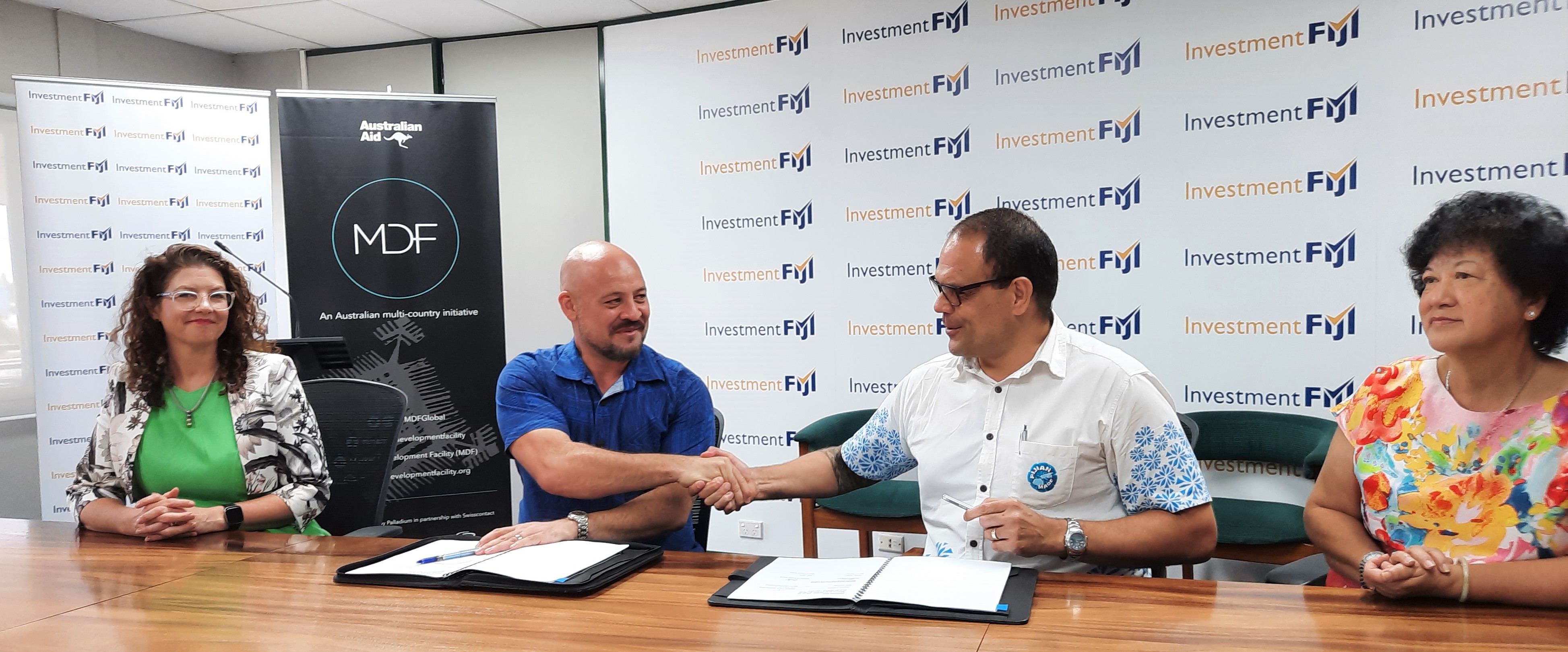Fiji’s total exports for 2020 (until November) were valued at $1.67bn, with mineral water, gold, sugar, garments, wood chips, fish, kava and coconut oil being the top commodities.
As 2020 presented new challenges and impacting global trade, Investment Fiji today launched the Exporter Guide for local exporters to navigate through the new environment.
According to the organisation, the guide will give Fijian businesses access to the latest information on exporting regulations and requirements.
Investment Fiji CEO Craig Strong said they were delighted to launch the Fiji Exporter Guide.
“The e-document we’re launching today will be updated regularly by our team, so exporters can be confident that they have access to accurate and updated information on exporting requirements and regulations,” Mr Strong said.
It was stated the guide served as a reference tool for exporters looking for information on certification and testing of products, incentives, logistics services, current trade agreements, licensing as well as export insurance and financing.
The Australian High Commission’s Counsellor for Development Cooperation, Joanna Houghton, reiterated the timeliness of the guide and work with the Market Development Facility (MDF).
“COVID-19 has impacted global trade, and the Australian government is keen to support economic recovery initiatives in Fiji,” M Houghton said.
“This exporter guide will help local exporters as they navigate the new trade environment and regulations imposed due to the COVID-19 pandemic.
“We are proud to have been able to assist with the development of the Exporter Guide through our Market Development Facility.”
Fiji’s main export destinations were said to be the United States of America, Australia, New Zealand and the Pacific Island countries.
The new online resource will be available on Investment Fiji’s website via https://feg.investmentfiji.org.fj/ and has been developed with the support of Australia’s Market Development Facility (MDF).
Investment Fiji and MDF had also signed a Memorandum of Understanding (MoU) designed to promote trade and investment.
According to Mr Strong, they had already identified a number of partnership opportunities, key of which was their transition to the new Investment Promotion Agency and development of the new Trade and Investment Strategy.
The MoU was stated to provide the framework for progressing joint efforts with Investment Fiji to support trade and investment in emerging economic sectors such as outsourcing services, niche tourism, and high-value agriculture.



